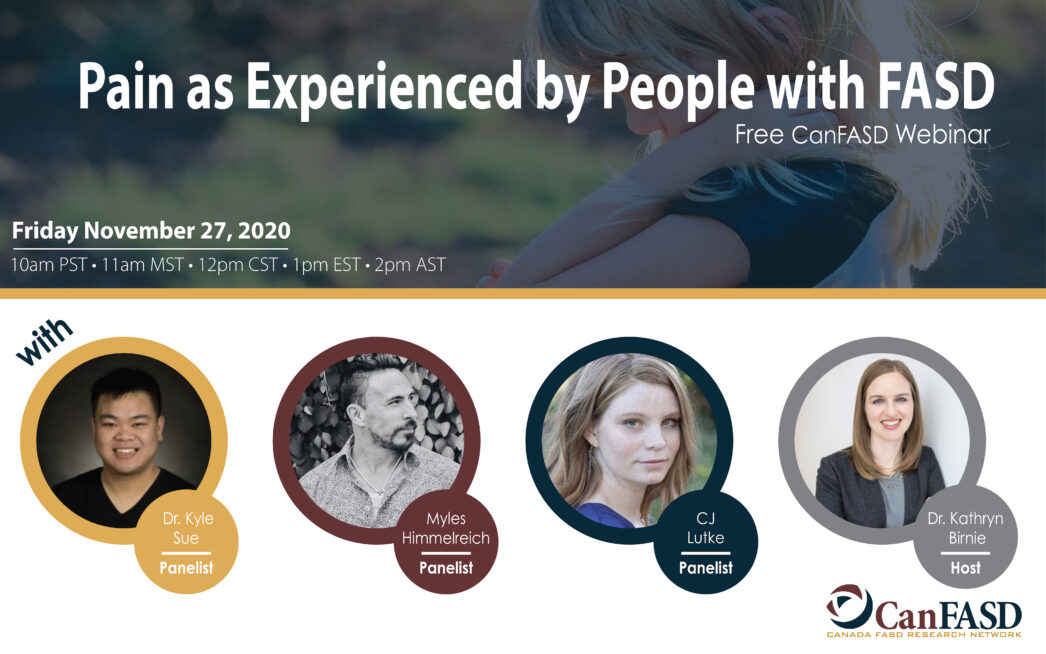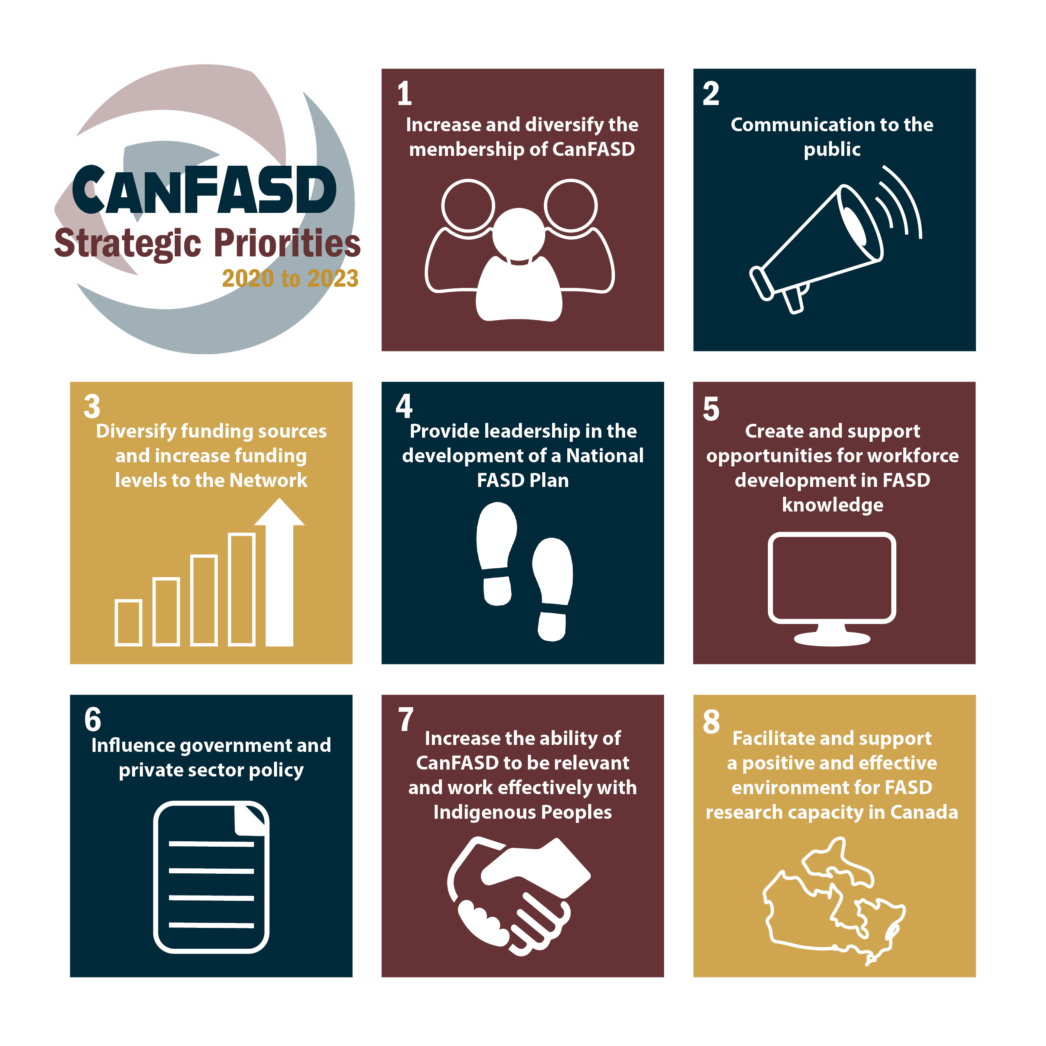There are not many resources available to assist with managing the online world with individuals with FASD but this new book by Dr. Ira Chasnoff is a useful one.
Experiences of Individuals with Disabilities and their Families During COVID-19
For families of children with disabilities, COVID-19 has intensified the unique challenges and associated stressors they face.
New Webinar: Pain and FASD
Pain as experienced by individuals with FASD is under-researched and frequently misunderstood and under-recognized in the medical community.
What’s New in FASD Research: October 2020
Here’s a brief summary on the some of the latest research published on fetal alcohol spectrum disorder (FASD).
Strategic Priorities for 2020 to 2023
The Strategic Priorities Plan doesn’t change what we’re doing right now; it just helps us identify areas where we need to do more.
Stress Management Strategies for Caregivers
I recently attended an online Parent/Caregiver Masterclass in Stress Management. I learned a lot and wanted to share some of the excellent strategies and resources to help us support our loved ones.
Fetal Alcohol Spectrum Disorder and Stress
Stress is a normal part of our daily lives and certain amounts of stress are important to help us function. Small doses of stress help us meet deadlines, get to places on time, and prepare for important events. However, long-term stress can be harmful and can lead to mental and physical health problems, like depression, substance use issues, and stroke.
Outcomes of Children with FASD in the Child Welfare System
Children living in the child welfare system (i.e. foster care, group homes) are known to experience more adverse outcomes compared to children who live with their biological parents or adoptive/other family members. Individuals with Fetal Alcohol Spectrum Disorder (FASD) are also predisposed to adverse experiences. However, these adverse experiences may be more common for those with FASD living within the child welfare system.
Looking for Artists with FASD!
We’re looking for Canadian artists with fetal alcohol spectrum disorder (FASD) to participate in our annual art competition!
What’s New in FASD Research: September 2020
How health care providers communicate with women about alcohol use during pregnancy is very important for FASD prevention. The authors of this study evaluated 61 midwives in a southwestern U.S. state to understand how their personal alcohol use compared to their professional recommendations about alcohol consumption during pregnancy









